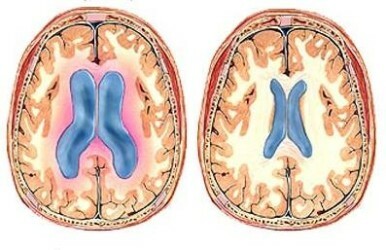How to overcome postpartum depression
Contents:
- Occurrence of postpartum depression
- Neurotic depression
- Depression with delirium
- Prolonged flow
- Control of postpartum depression
 The state of postpartum depression occurs in every second woman after giving birth. It is very important to notice its signs in time and to prescribe an adequate treatment to help a woman. At mum postpartum depression occurs in several forms, on which the main manifestations of this condition depend.
The state of postpartum depression occurs in every second woman after giving birth. It is very important to notice its signs in time and to prescribe an adequate treatment to help a woman. At mum postpartum depression occurs in several forms, on which the main manifestations of this condition depend.
The emergence of postpartum depression
The main factor in the development of postpartum depression is a change in the life of a woman on a psychological and social level. Many issues of everyday life, social status and social roles become most relevant after the birth of a child.
In addition, the most important is the change in the hormonal background of a woman associated with the transition from a state of pregnancy to a normal state. The development of postpartum depression occurs a few weeks after the birth of the child and is characterized by maximum manifestations at 3-9 months from birth.
Neurotic depression
Development of this form of the disease is typical for women with initially existing abnormalities in the mental sphere. The main manifestation of postpartum depression is dysphoria, which is characterized by increased irritability with negative coloring on surrounding people and objects, as well as unmotivated outbursts of rage and aggression.
In addition to this, there are manifestations from the internal organs - VSD, palpitations, excessive sweating, anorexia and self-displeasure. Gradually, these phenomena are added violations in the field of sleep and sexuality, frequent heart and headaches, increased concern for their health, as well as a constant low mood, down to total apathy.
The main symptoms of a neurotic form of postpartum depression are fatigue throughout the day, inability to rest, as well as feelings of inferiority.
Depression with delirium
Along with the decreased mood, in women with this form of postpartum depression, the appearance of delirium. First of all, it is connected with a sense of guilt and ideas of self-abasement. Very often against this background there are suicidal thoughts and attempts.
In the development of depression with delirium, the state of disorientation in one's own personality and in the surrounding reality is typical: a woman ceases to recognize people close to her and even a child. This form of the disease is extremely rare and usually occurs very hard. Treatment of postpartum depression with delirium requires immediate hospitalization in a psychiatric hospital.
Prolonged form of
 The most common form of postpartum depression. Very often it is not diagnosed in women due to heterogeneity and weak manifestation of manifestations. These changes in the personality of the parent are associated with the difficulties of raising a child, the emergence of new responsibilities and with other reasons. Usually, the first symptoms of lingering form are a decrease in mood after delivery when you return home.
The most common form of postpartum depression. Very often it is not diagnosed in women due to heterogeneity and weak manifestation of manifestations. These changes in the personality of the parent are associated with the difficulties of raising a child, the emergence of new responsibilities and with other reasons. Usually, the first symptoms of lingering form are a decrease in mood after delivery when you return home.
The main symptoms of postpartum depression:
- a constant feeling of fatigue;
- lack of sleep;
- irritability.
A woman who is tearful, constantly blames herself for paying little attention to the child, and can not provide him with proper care. Low self-esteem and inactivity are characteristic. The woman notes a lack of motivation for any activity, associated, according to the woman herself, with a lack of energy due to constant lack of sleep.
In this case, there are transient disruptions in memory and concentration - any work that requires focusing, causes irritation and evasion from it. Somatic disorders characterized by abnormalities in the functioning of the gastrointestinal tract( nausea, diarrhea or constipation), cardiovascular system( palpitations, chest pains), as well as permanent headaches, are associated.
Combating postpartum depression
The main help in this condition is in psychotherapy. An experienced psychotherapist, working with a woman, can fully cope with the symptoms. Treatment of postpartum depression is a long process, in which, in addition to psychotherapy, antidepressants are often used under the supervision of a psychiatrist.
Postpartum depression poses a serious threat to the health of the mother and child. Therefore, every woman and her relatives need to know about the first manifestations of this condition and about the symptoms peculiar to him. Timely treatment started by a therapist, allows you to very quickly cope with postpartum depression.
write the question in the form below:



